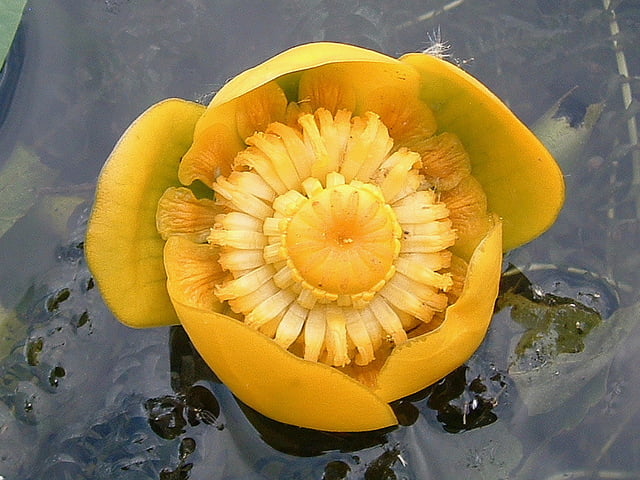Recent research by Ben Gurion University of the Negev (BGU) in Israel has revealed that extracts from the yellow water-lily’s roots and leaves show promising results in improving chemotherapy treatment for cancer. The yellow water-lily (nuphar lutea) is a plant that can be found on the Yarkon stream and other water reservoirs in Israel’s Galilee.
Related articles
- Israeli-Danish Team Finds New Way To Zap Malignant Cells
- Study: How To Make Chemotherapy Side-Effects Less Deadly
The difficulties of treating cancer are well-known. Aggressive chemotherapy leads to side effects, and cells can become resistant to chemotherapy. A reason for the resistance in some cases is inflammation. This recent research has the potential to improve that situation by focusing on the inflammation mechanism of cells.
“In the stomach, for example, chronic inflammation can lead to stomach cancer,” Professor Jacob Gopas of BGU’s Department of Microbiology and Immunology tells NoCamels. “Inflammation also plays a part in rendering cells resistant to chemotherapeutic treatment. Our research shows that the plant extract has an inhibitory effect on a protein that causes inflammation.”
Making the cells more sensitive to chemotherapy
In this interdisciplinary research, 34 extracts from different parts of plants were screened for the specific inhibition of a protein complex called NFkB. This protein complex controls the transcription of DNA and plays a key role in inflammation and immune responses. Under laboratory conditions, the extracts of the leaves and roots of the yellow water-lily were found to inhibit NFkB activity. This confirms its potential in suppressing inflammation and possibly cancer.
As another part of the research, the yellow water-lily extract was given together with conventional chemotherapeutic drugs like cisplatin and etoposide. It was found that the extract rendered both cells under laboratory conditions and mice bearing tumor cells more sensitive to the chemotherapeutic drugs. Thus, the yellow water-lily extract acts as a ‘sensitizer’, resulting in more effective treatment.
Sign up for our free weekly newsletter
SubscribeThe research is still in its early days. “The plant extract is from the leaves, but it also depends on the season that you take the leaves. If you take them in winter, there will be no biological activity,” Gopas tells NoCamels. Hence, the immediate goal is to identify the compound in the extract that is responsible for the biological activity so that more standardized experiments can be conducted.
Unlocking nature’s secrets
The potential of the yellow water-lily as a source of medicine is not limited to cancer. Preliminary tests have shown that the yellow water-lily extract is effective against other diseases that concern NFkB activity. These include diseases such as colitis, which is the inflammation of the colon, and leishmaniasis, which is a parasitic disease spread by the bite of the female sand fly.
Plant-derived products have long been and will continue to be important sources of medical agents and models for the design, synthesis, and semi-synthesis of novel substances. So far, only 5 to 15 percent of the roughly 250,000 existing species of plants has been systematically surveyed for biological activity. A further problem is the increased desertification of the world, which is leading to the extinction of some species.
Photo by Dandelion And Burdock
Related posts

Israeli Medical Technologies That Could Change The World

Harnessing Our Own Bodies For Side Effect-Free Weight Loss

Missing Protein Could Unlock Treatment For Aggressive Lung Cancer




Facebook comments